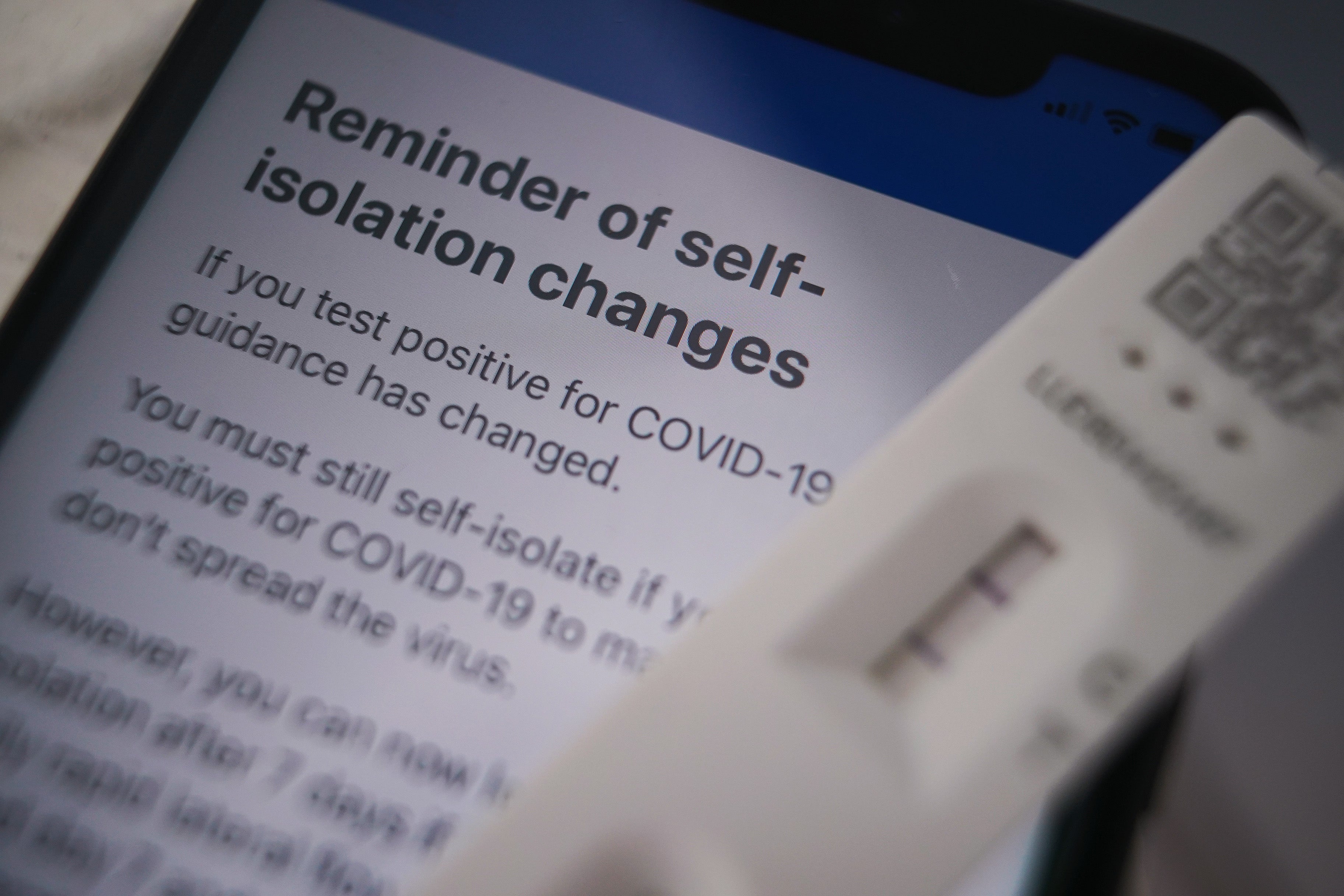‘Living with Covid plan’ will hamper NHS patient care, doctors warn as restrictions lift
NHS faces ‘perfect storm’ should a new variant arise, senior London GP warns

Senior doctors say the government’s “Living with Covid” plan will hamper the ability of the NHS to provide care.
Michelle Drage, chief executive of the Londonwide Local Medical Committee, which represents the majority of practices in the city, has said the government’s changes may discourage vulnerable patients to seek care when they need it, while David Nicholl, a neurologist and spokesperson for Doctors’ Association UK, said it could exacerbate health inequalities.
It comes as the legal requirement to isolate after testing positive is lifted from Thursday, while free Covid testing ends on 1 April.
NHS England sent a letter to all healthcare providers today confirming workers would have to continue with current rules and not come into work after testing positive.
Staff were told they should continue to carrying out regular testing, and access this through national routes until 31 March, but were not given guidance on testing requirements beyond this.
Dr Drage said the changes in isolation and testing rules could put off vulnerable patients.
“We may well see people not being able to access the services they need to because they’re afraid to attend,” she said.
“Then to make people pay for those tests for what looks like a fiver a pop, when the people that can least afford it and the people who can least afford to take time off... suggests to me we’re increasing the risk of inappropriate transmission.”
If a new vaccine-resistant variant emerged, it would take two weeks to impose restrictions again, she said.
“It’s a perfect storm that could be brewing that will have a further impact on the ability of patients to be properly cared for… It feels like, yet again, the government gambling with people’s health to sustain the economy.”
The senior GP said there is a concern that staff could see increased levels of abuse, with patients who may refuse to wear a mask.
She also warned there would be a “huge bulge in demand” as practices and other NHS services are still limited in their capacity, with staff off with Covid, meaning that some patients could get missed.
Dr Nicholl said health inequalities that already exist for patients could be made worse by the changes.
“The case numbers are still fairly high and if you’re dealing with a vulnerable population, it does make the risk of outbreaks greater,” he said.
Nick Scriven, from the Society of Acute Medicine, said health workers would have to isolate if they care for extremely vulnerable patients.
He said: “If I was symptomatic, I’d want to know what’s going on. At the moment, we [NHS staff] do twice-weekly asymptomatic tests, and that picks up quite a lot of infectious people, but I can’t imagine people paying £10 a week for the privilege of coming to work.”
Stephen Buckley, head of information at the charity Mind, acknowledged that many would welcome “some sense of normality”.
“However, knowing that you’re rubbing shoulders with others who have tested positive for Covid could be a huge source of anxiety for those of us with mental health problems, particularly those with conditions like OCD related to contamination,” he said.
In a story shared by Mind, Catherine, a 23-year-old from Reading with OCD, described how she was previously “terrified” when Covid restrictions eased.
She said: “Before the pandemic, my OCD made it difficult for me to be in busy communal settings. So, lockdowns reduced my anxiety somewhat – but avoiding situations like that isn’t healthy in the long term. I thought, when they get rid of restrictions, my anxiety might just go away – but it’s been a long time since then. It’s different now. “My OCD has always been about contamination, but it wasn’t about viral contamination until the pandemic hit.
“When restrictions eased, I was terrified. It was like a switch in my head had been flicked, and there was no way of turning it off. I couldn’t go into supermarkets without ensuring I was two metres apart from everyone – I was fixated on that length, thinking I would catch coronavirus if I got any closer.
“Thankfully, I have a relatively normal social life now, but I still feel restricted. I always wear a mask or two in public, wash my groceries and sanitise my hands a lot. I feel sad when I see some people living life like they were before, because I’m not able to live in freedom just yet.”
Join our commenting forum
Join thought-provoking conversations, follow other Independent readers and see their replies
Comments


Bookmark popover
Removed from bookmarks